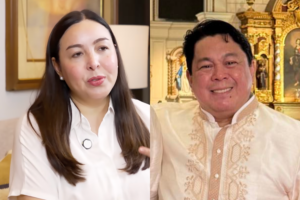Flat-earthers have been on the news and in the noise of social media a lot these days, following reports that the movement is gaining traction in the Philippines. The movement, thriving disappointingly even through the most amazing achievements of human space exploration, has been growing over the last few decades. Now the internet has given birth to yet another beast, as research shows that YouTube and social media have allowed these societies to flourish and to recruit. Armed with amazing amounts of pseudoscience, a smattering of Scripture, and just enough scientific terms to start a conversation, flat-earthers earnestly espouse the belief that the Earth is not round, and will happily tout that knowledge, smugly claiming that those who believe that the earth is round have been duped.
It takes a determined kind of denialism to reject all evidence that the Earth isn’t flat, as though flight plans, space exploration and physics were all born of conspiracy. To reject knowledge of the Earth’s shape is to reject the scientific method, and with it all that is knowable, all that is detectable empirically. The flat-earthers fit quite well into the scenery of this brave, new, post-truth world, where loud voices obscure empty minds and lacking intellects; in the words of Evelyn Waugh, they are “a sort of primitive savage… something absolutely modern and up to date that only this ghastly age could produce,” gifted with information at their fingertips but with no thoughtfulness, and when the rejection of authority or expertise is heralded as a worthy argument. I hold them equivalent to the anti-vaxxers, or those who would rather believe a conspiracy than believe scientific evidence, confusing what opinions ought to be debatable, with what ought to be considered factual.
Flat-earthers are, in theory, harmless. They’re like the aunts we all have on Facebook who believe all the “news” that they see, unable to distinguish fact from easily created, and falsified, content. What isn’t so harmless is how we are veering further and further away from truth as we know it, into the narcissistic view that opinion is equivalent to fact, rejecting expertise and authority, calling into question even the most fundamental established knowledge.
Tom Nichols, author of “The Death of Expertise,” writes: “These are dangerous times. Never have so many people had access to so much knowledge, and yet been so resistant to learning anything.” It’s the era of “fake news”: it’s harder and harder to separate truth from fiction, and the job of fact-checking seems hopeless, almost moot.
The rejection of established truths and the expertise that allowed these truths to become knowable is maybe not so dangerous in the hands of a random, garden-variety flat-earther, but much more dangerous in the hands of, say, Donald Trump, who is not a scientist or an expert in any conceivable way, but who can convince an unintelligent populace that climate change isn’t real. A few anti-vaxxers’ rejection of the scientific basis for vaccination may not have been so dangerous a few years ago, but has an all-too-real, horrifying impact now, when consequences have come to bite us in the tail, in the form of a measles outbreak. Truth, and the way it is handled by our public officials, affects us all.
In the first place, those who have a habit of denying what is knowable truth ought not to be trusted with public welfare, and we ought to have a renewed interest in, and respect for, truth-telling. We ought to engage flat-earthers, anti-vaxxers and the similarly misinformed. Debates among our political aspirants ought to be rooted in fact, and ought to be subjected to questioning when they aren’t. Those who are unable to tell the truth, like the unflappable Imee Marcos when it comes to her credentials, should be out of the question. It’s as good as time as any to remember some basic truths which should be undisputed: the Earth is round; vaccines work; human rights belong to all; and all lives — from the affluent down to the poor soul struck down by “tokhang” — matter in equal measure.
kchuarivera@gmail.com


